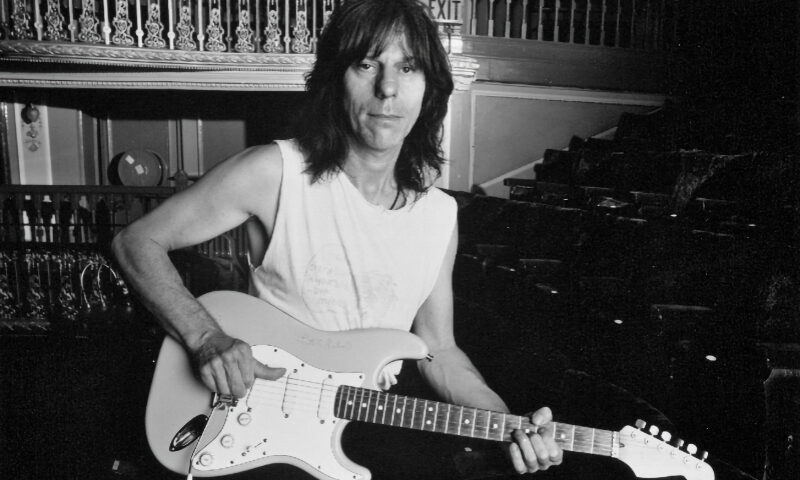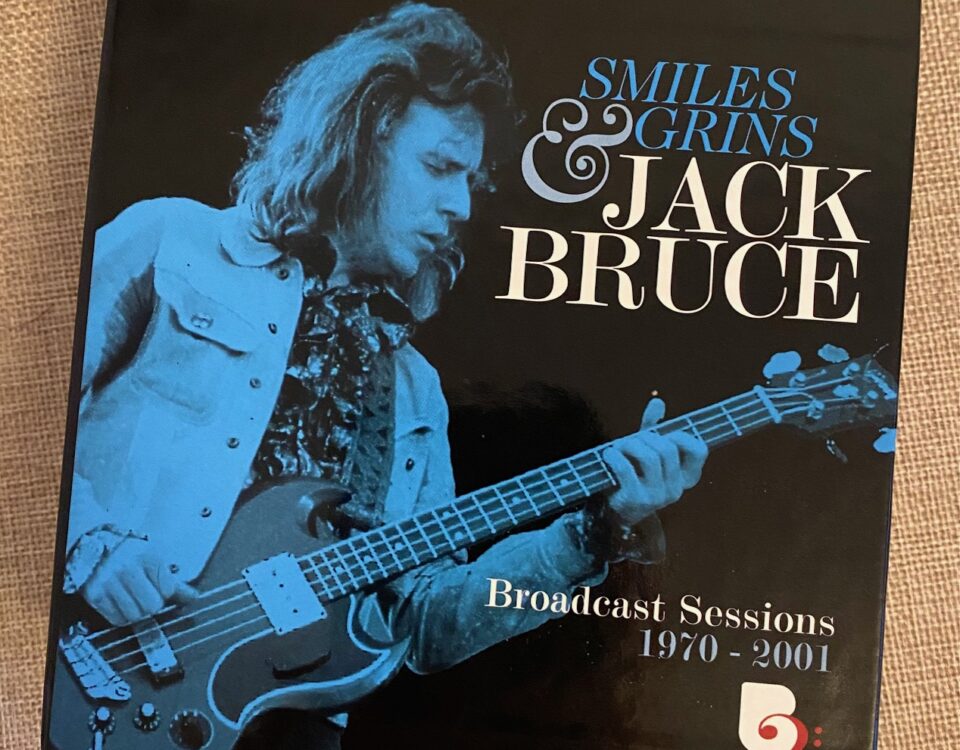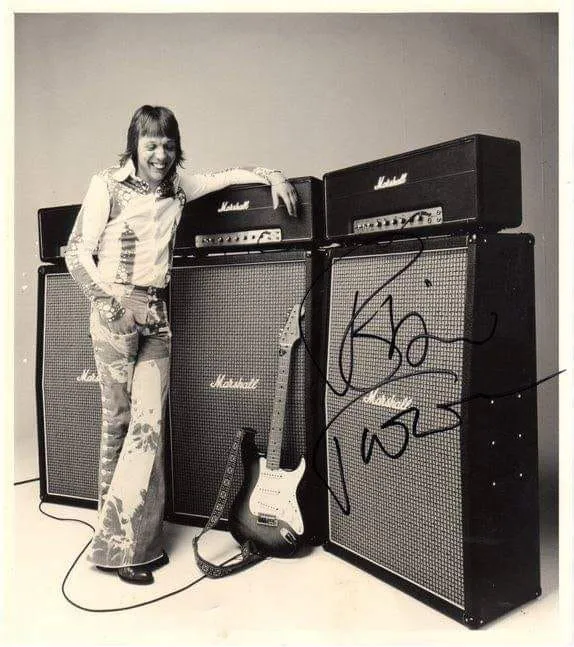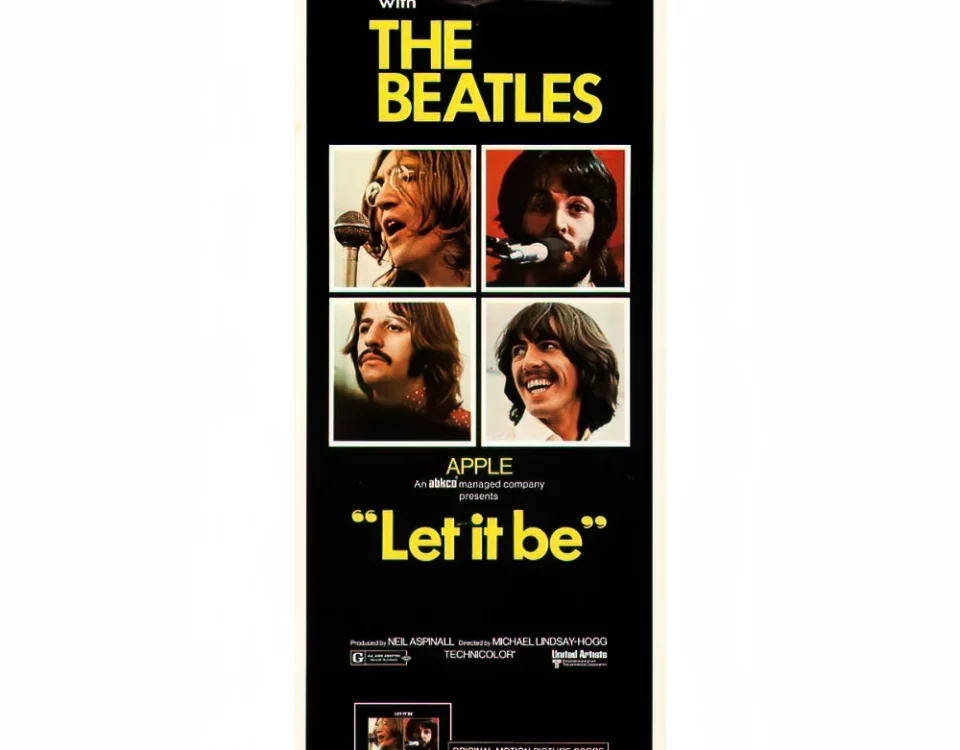The Fearless Creator

The announcement of the death of Jeff Beck yesterday was especially shocking as he had just weeks before played a series of US dates hot on the heels of a lengthy European tour. By all accounts Beck was his usual musical self: brilliant.
I’m not going to get into a lengthy survey of the decades of musical exploration that made up Beck’s boldly wandering career path. Such overviews are easy to find. But I will say that I’m glad I made the most of almost every opportunity I had to see him play.
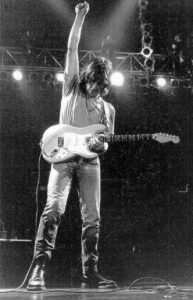
The fearless creator strikes a fearless pose in this promotional image. Photo: Epic Records
To me, it’s clear that in the late 1960s there were five Founding Fathers of British Rock Guitar: Jimi, bringing an American influence to London before passing away far too soon, Eric Clapton, Jimmy Page, Pete Townshend, and Jeff Beck. Yes, there were dozens of other great guitarists, but those five towered over everything, and their British influence would soon reverberate across the United States and eventually around the world.
As decades passed, though, the creative fire among some of the four remaining six-string titans didn’t burn quite as brightly.
Clapton recorded new music, but to many ears more recent efforts lacked intensity and passion. By 2022, he had arrived at the distressing persona of an anti-vax political curmudgeon.
Two decades ago, Page sprung into surprising action, reenacting his fiery and inventive work with Led Zeppelin while backed by The Black Crowes. Seven years later he took the stage with his Zeppelin bandmates and Jason Bonham on drums, the son of the man whose death led to the end of Zeppelin as an active musical entity. Page was fully reanimated – and then fell creatively silent in the decade-plus since.
Pete Townshend occasionally toured big shows focused squarely on the glory years of The Who, teamed with vocalist Roger Daltrey and a reliable band of backup musicians. “The Who Hits Back!” tour began in 2022 and stretches into 2023 with summer European dates scheduled in huge venues.
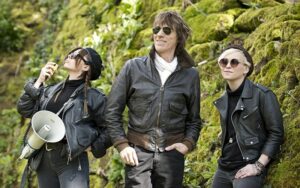
Jeff Beck looks to the future with Bones UK, the guitarist hailing loudly as always. Photo: Atco Records
Meanwhile, Jeff Beck had followed his creative whims at all costs. His playing could be thrillingly aggressive one moment, lyrically beautiful the next. From power-trio hard rock to r&b, jazz fusion to brittle instrumentals, and even earthy rockabilly, Beck explored and mastered it all. When I saw him in 2016 he had ventured into near-industrial music territory, bringing the females of Bones UK into his touring band, a development which found vocalist Rosie Bones emoting through an electric megaphone. Hence the album and tour being dubbed Loud Hailer. Jeff Beck was creatively fearless.
As a result, though, Beck’s fortunes ebbed and flowed. The last few times I saw him the venues ranged from small theaters to arenas to stadiums – and even one wild night in a packed, low-ceiling rock club somewhere in central New Jersey, the name of which I can’t remember.
The difference between Jeff Beck and his compatriots of the late 1960s was that Beck acknowledged his past, but always moved forward musically at a near-blinding pace.
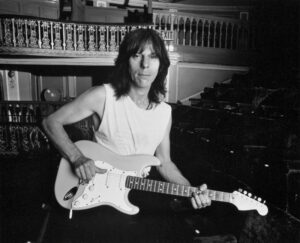
Jeff Beck turned to Fender Stratocasters after years of playing Gibson Les Pauls. In the process, he reinvented guitar playing, developing a highly individualistic approach that was his alone. Photo: Epic Records
I spent five years writing Modern Listener Guide: Jimi Hendrix, which in many passages delves into explorations of Jimi’s brilliance as a guitarist. I could do something similar with Jeff Beck’s myriad approaches to his instrument. Instead, I recommend viewing and hearing one singular documentation of Jeff’s long musical journey: Live at Ronnie Scott’s.
In 2007 Beck played a series of shows at Ronnie Scott’s, a small, influential jazz club in London. The intimate, tightly-packed environment lent itself to a fabulous look at Beck in action as he dipped into a dizzying array of genres and styles backed by long-time musical companions. Well-chosen guests Imogen Heap and Joss Stone contribute a handful of vocals, but everything revolves around Jeff Beck and his interactions with his fellow musicians, shaping forms and changing directions with a sly look or quick gesture. Live at Ronnie Scott’s – which is available in CD, DVD, and Blu-ray formats – brilliantly presents not just Beck’s unique and astonishing technique, but his sheer sense of musicality.
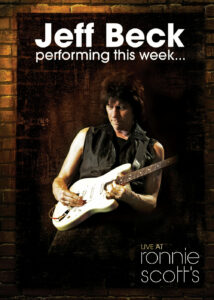
As an introduction to – or reminder of – the daring brilliance of Jeff Beck, “Live at Ronnie Scott’s” is absolutely essential.
The great Robin Trower’s playing resonates with me in a way no other living guitarist’s music does. But when asked over the years who is the most inventive and original – if it must be said, “the best” – I’d always give that title to Jeff Beck. There was no question about it.
The throne is now vacant.
